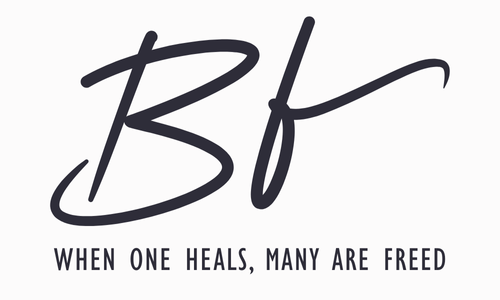Why Talk Therapy Isn’t Cutting It Anymore… (for some stuff)
Image credit: Nik Shuliahin
I get the picture.
You’ve been going to a counsellor for weeks, or months, or even years, and you feel like you aren’t getting anywhere except burning a hole through your pocket. You might be giving up hope on the whole process and have resigned to the fact that this is just the way that you are, your perspective on you, your issues and the world hasn’t changed, and you’re accepting that whatever life has laid out for you is what it is.
Beware though, this isn’t the “good” type of acceptance that people keep banding around on social media spaces, it’s more of a resignation to a feeling that things won’t get better and you just simply have to “put up with” whatever life throws at you.
How did things get this way?
You’re stuck in your head.
Before I elaborate, I don’t want to knock the work that counsellors or talk therapists do. It can be very valuable and extremely helpful for folks experiencing blocks on issues that do not lie deep-rooted in their psyche. They can help their clients delineate their problems and help strategise ways forward to break them out of maladaptive patterns - this is why some forms of counselling are often short-term work.
BUT, for issues that are not just appearing on the surface, but also lurking underneath and making themselves a home in the very foundations of your psyche, they will require more than just talking about the issues.
Rather than taking a cognitive approach and helping you look for answers in your brain, it’s worth paying some attention to your body.
The body is a powerhouse of a storage unit which houses sensations and physiological responses related to traumatic events. Our brain, which contains the tools for language, when under significant emotional and psychological stress, can often fail to comprehend the stresses associated with the traumatic event. Our species hasn’t been designed to be able to cognitively make sense of them, so we’re cut off from language and therefore the body is left to absorb all of these energies, for lack of a better word. This is why when you retell traumatic events to a counsellor in the form of a short summary, it doesn’t quite encapsulate the true inner experience, even if you chose the fitting words to describe the event.
Image credit: freestocks
So how can “body work” help?
By taking a holistic approach, integrating both mind and body, we can explore (in a safe environment) through insight and focussing, how you react to inner sensations. Sounds easy in theory but will be difficult, at first.
But over time, and with my guidance, you will learn to not just be present in the existence of these sensations but you will be able to accept them, foster more self-compassion (I will speak more on this in another blog), more self-awareness, and be able to paint the picture of your inner landscape that may have been shut off from you for years that you were not even aware of. The body stores an enormous amount of wisdom that is rarely ever considered and once you open yourself up to this world, which will seem scary at first, you will be able to navigate and negotiate challenging emotions with more ease.
It may be the case that you struggle to even focus on bodily sensations. Often, my clients experience racing thoughts when they conduct this exercise for the first time. And this makes sense because your thoughts are trying to keep you from developing awareness of the potential hurt and pain that might be stored in the body. A smart strategy, but it can set you up for failure in the long term.
Learn with me to get in touch with your inner sensations, be curious about them and then rendezvous and integrate the body with the mind and forge a more productive and psychologically positive path forwards in life.
Image credit: Levi XU
References
Gendlin, E. (2003). Focusing. Rider Books.
Ho, JMC., Chan, ASW., Luk, CY., Tang, PMK. Book Review: The Body Keeps the Score: Brain, Mind, and Body in the Healing of Trauma. Front Psychol. 2021 Aug 18;12:704974. doi: 10.3389/fpsyg.2021.704974.
Jordan, S. (2016). An Introduction to Focusing. British Focusing Association. Website. Available at: [https://www.focusing.org.uk/an-introduction-to-focusing].
Van Der Kolk, B. (2014). The Body Keeps The Score. Penguin Random House UK.




